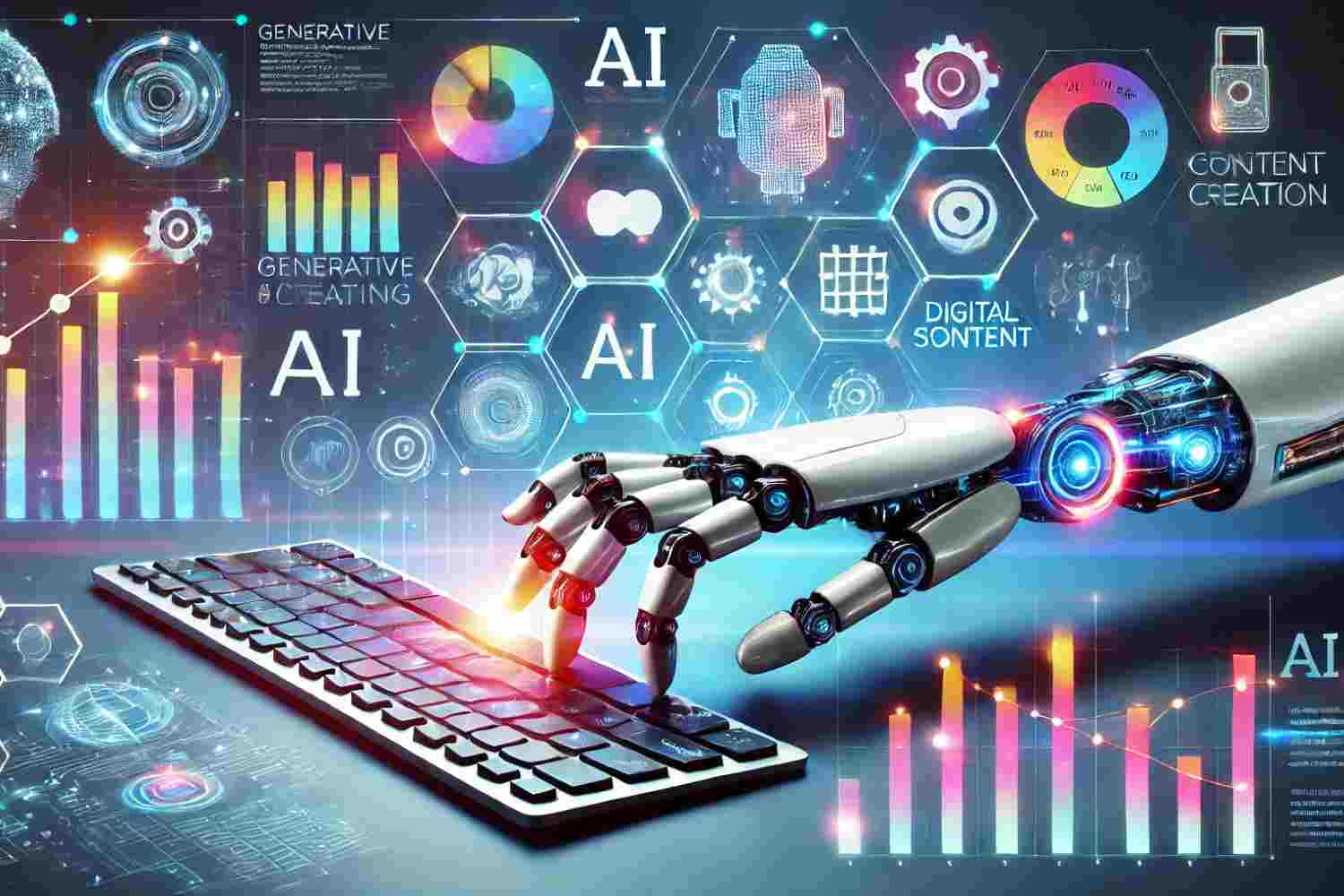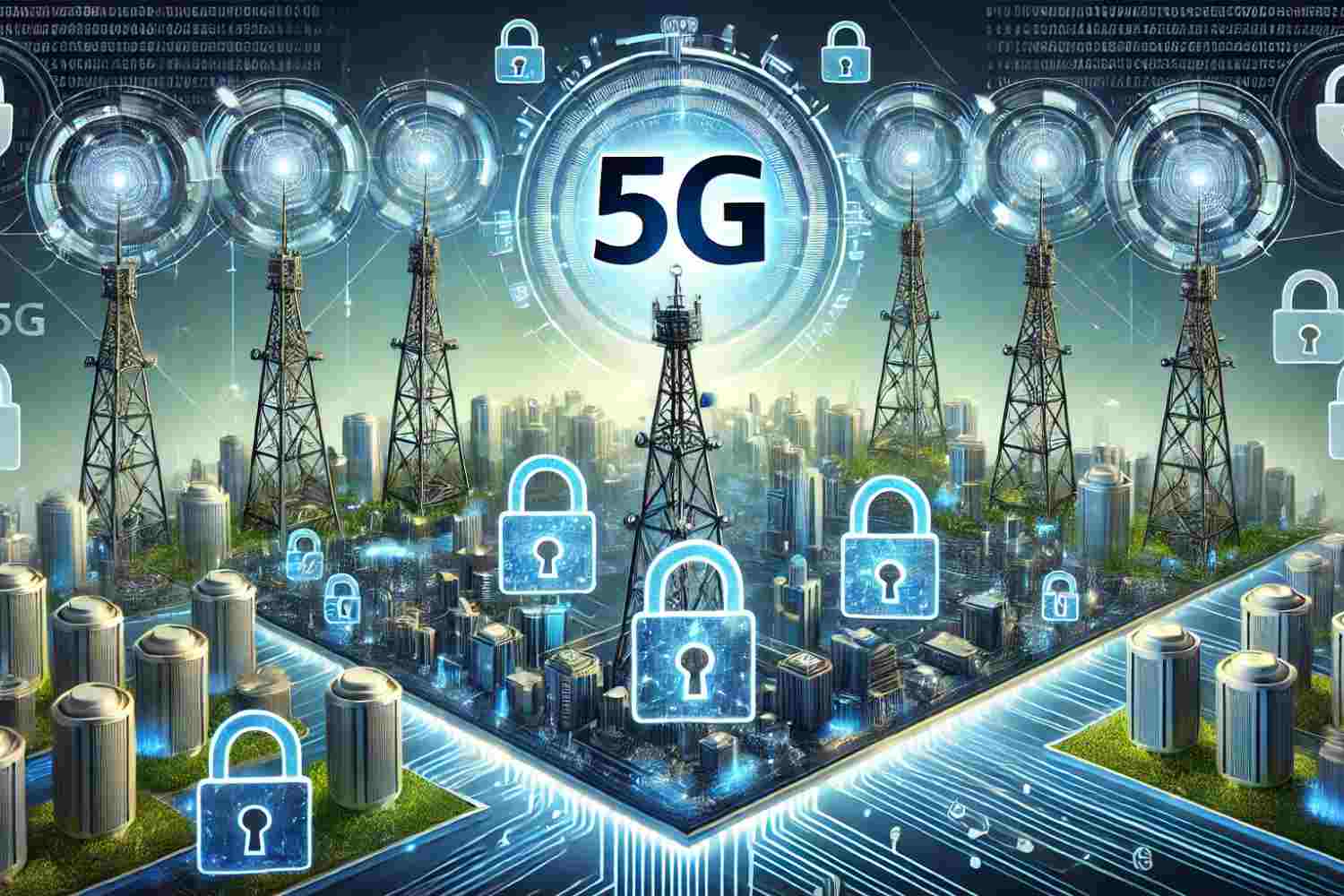The rapid evolution of artificial intelligence (AI) has transformed numerous industries, and content creation and marketing are no exception. Generative AI, powered by advanced algorithms and machine learning models, has become a game-changer in the way businesses produce, distribute, and optimize content. From generating high-quality text to creating realistic visuals and videos, generative AI is reshaping marketing strategies, reducing costs, and enhancing creativity.
This blog delves into how generative AI is revolutionizing content creation and marketing, exploring its applications, benefits, challenges, and future potential. To enhance understanding, we’ll incorporate charts, graphs, infographics, and other visual aids.
Understanding Generative AI
What is Generative AI?
Generative AI refers to a subset of artificial intelligence that uses machine learning models to generate new content. This includes text, images, videos, music, and even complex designs. Models like OpenAI’s GPT (Generative Pre-trained Transformer) and DALL·E are prime examples of generative AI in action.
How Does Generative AI Work?
Generative AI models are trained on vast datasets, learning patterns, structures, and styles. They use this knowledge to create unique outputs based on specific prompts or requirements.
Key Technologies Driving Generative AI:
- Natural Language Processing (NLP): Enables text generation and language understanding.
- Computer Vision: Facilitates image and video creation.
- Neural Networks: Powers deep learning for advanced generative capabilities.
Applications of Generative AI in Content Creation and Marketing
1. Text Content Generation
- Blog Posts and Articles: AI tools like ChatGPT generate well-structured and engaging articles in minutes.
- Social Media Posts: Automates the creation of captions, hashtags, and responses.
- Email Campaigns: Personalizes email content at scale.
2. Visual Content Creation
- Images: Tools like DALL·E and MidJourney create high-quality visuals tailored to brand aesthetics.
3. Video and Audio Production
- AI-generated scripts, voiceovers, and video edits streamline production processes.
4. Content Personalization
- Generative AI analyzes user behavior and preferences to create tailored content for individual audiences.
5. Ad Campaign Optimization
- Generative AI produces and tests multiple ad variations to identify high-performing creatives.
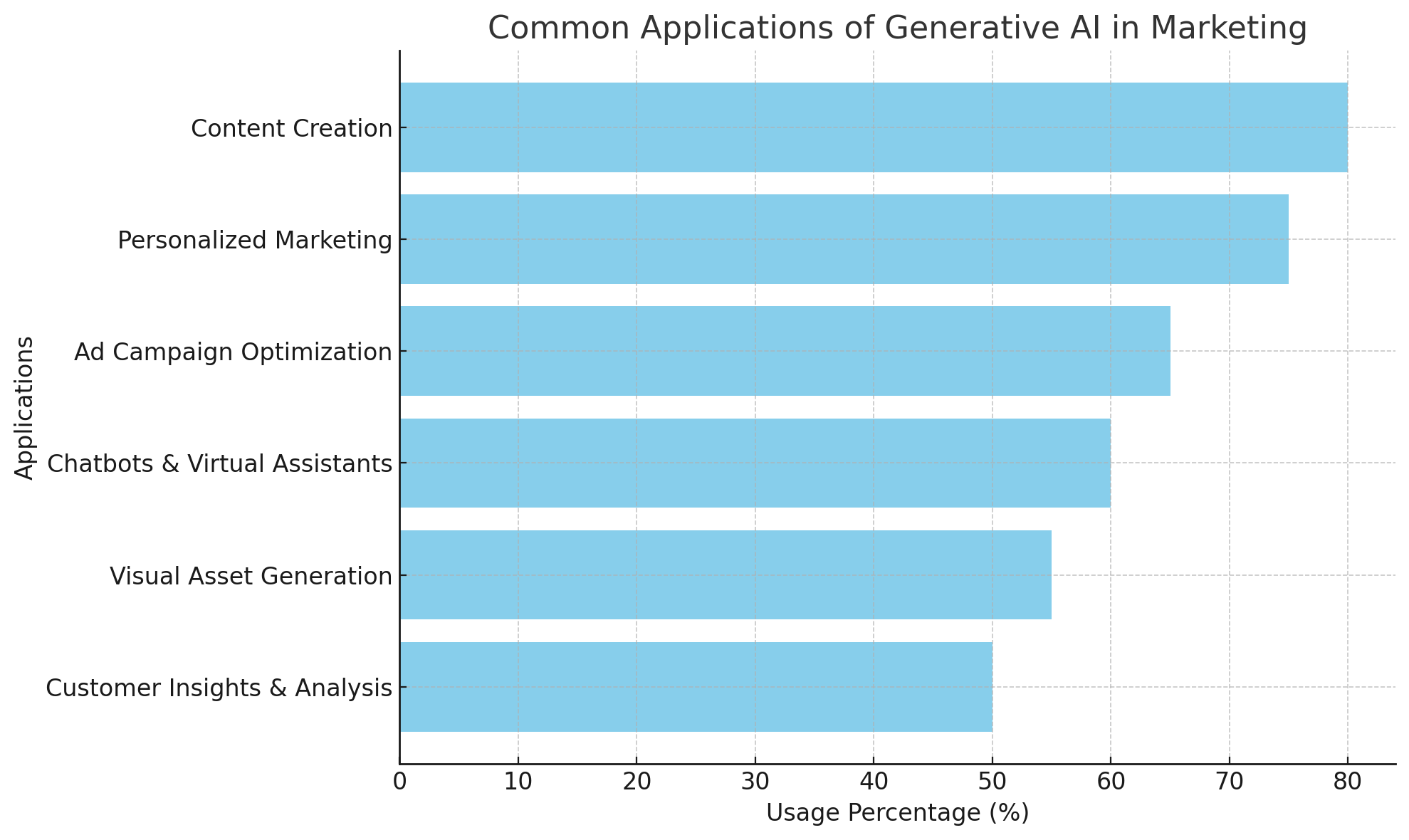
Benefits of Generative AI in Marketing
1. Increased Efficiency
- Generative AI automates time-consuming tasks, allowing marketers to focus on strategy and creativity.
2. Cost Savings
- By reducing the need for extensive human resources, generative AI lowers production costs.
3. Scalability
- Businesses can create vast amounts of content to support large-scale campaigns.
4. Enhanced Creativity
- AI offers fresh ideas and perspectives, sparking innovation in campaigns.
5. Data-Driven Insights
- Generative AI analyzes performance metrics, optimizing content for better engagement.
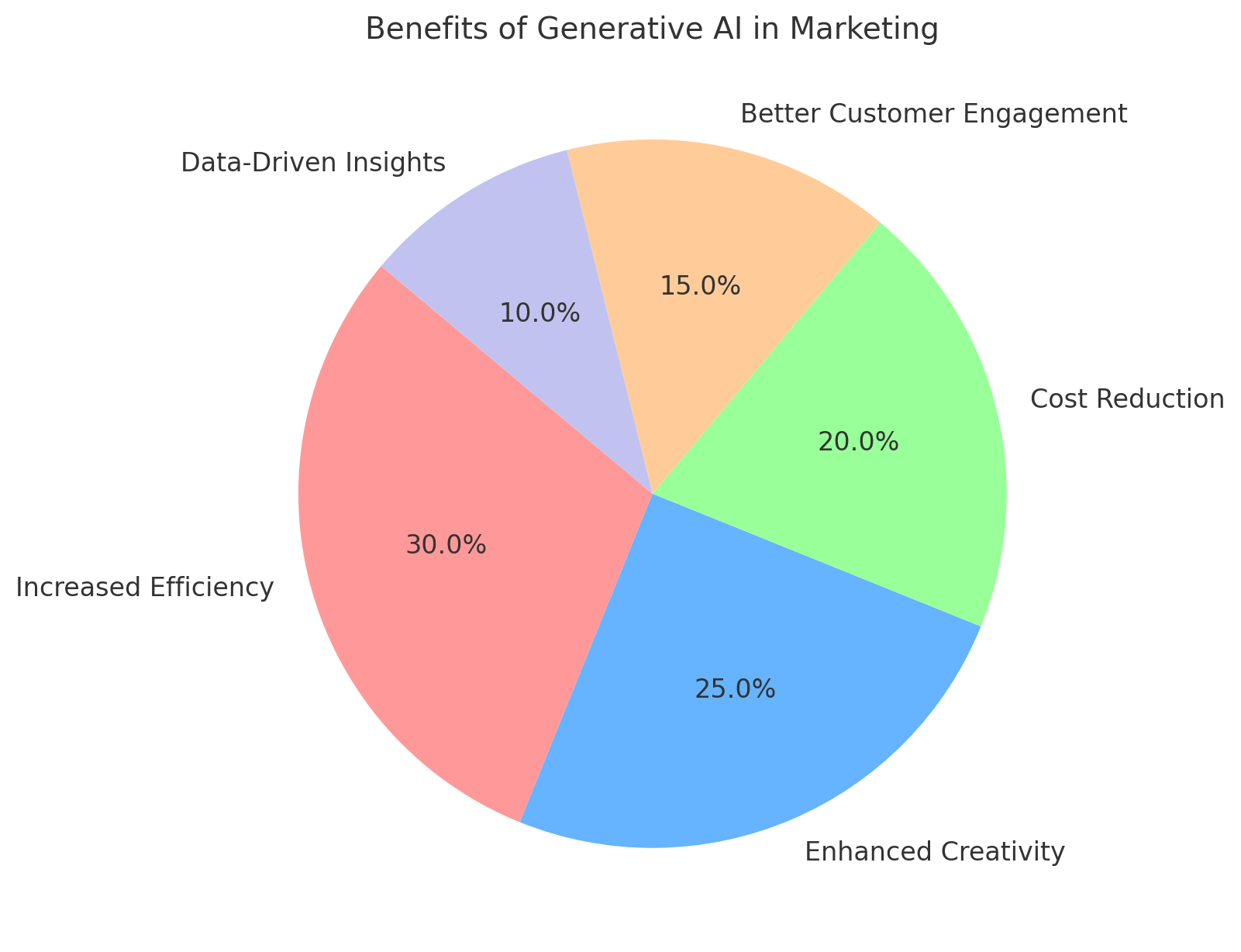
Challenges of Using Generative AI
1. Quality and Authenticity
- AI-generated content may lack the emotional depth and authenticity of human-created work.
2. Ethical Concerns
- Potential for misuse, such as generating fake news or deepfakes.
- Copyright and intellectual property issues.
3. Dependency on Data
- Generative AI requires large datasets, raising concerns about data privacy and bias
4. Integration Challenges
- Adopting AI tools may require significant technical expertise and resources.
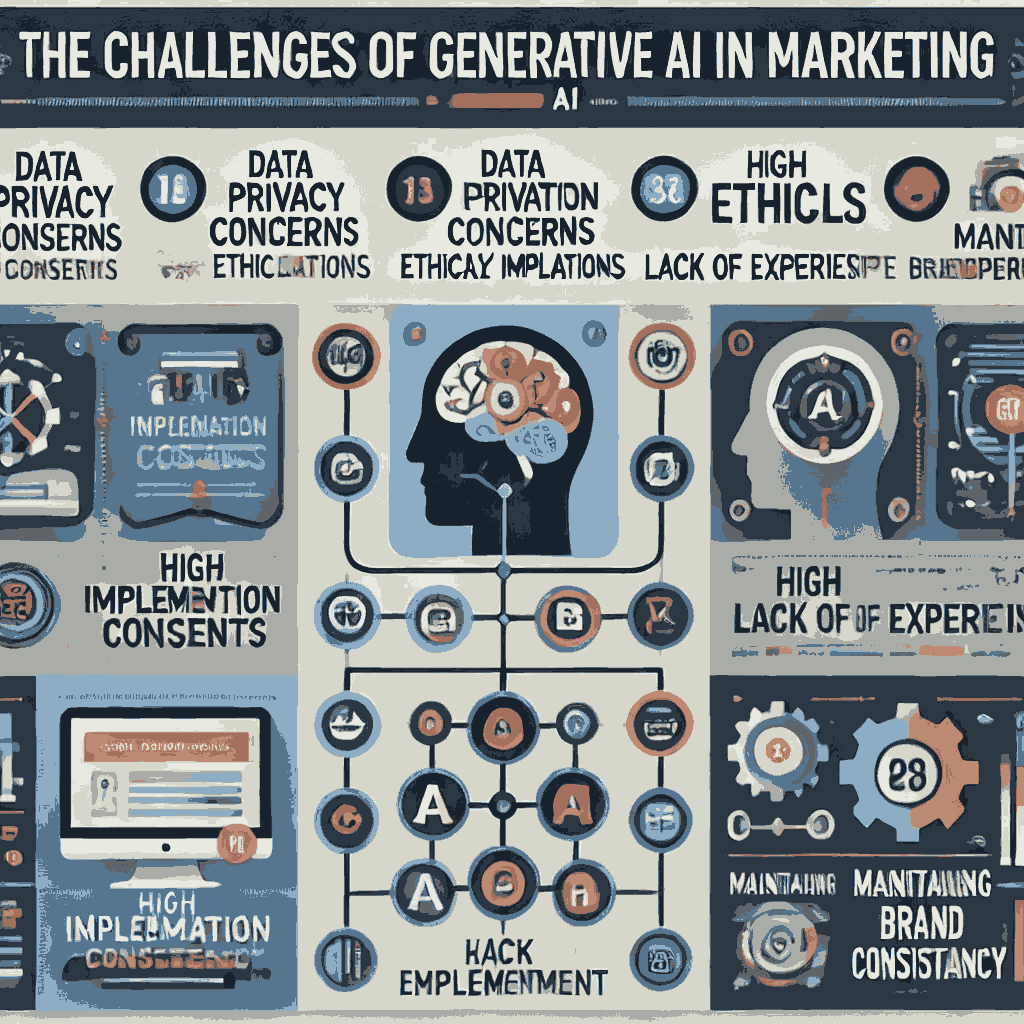
Real-World Examples of Generative AI in Marketing
Example 1: Coca-Cola’s AI-Powered Campaigns
Coca-Cola used AI to generate personalized video ads based on customer preferences, achieving higher engagement rates.
Example 2: Sephora’s Virtual Artist
Sephora employed AI to create a virtual try-on feature, allowing customers to test products digitally.
Example 3: Netflix’s Personalized Thumbnails
Netflix uses AI to generate personalized thumbnails, increasing click-through rates.
Future Trends in Generative AI for Marketing
1. Hyper-Personalized Content
AI will enable ultra-specific targeting, delivering content tailored to individual tastes.
2. AI-Generated Influencers
Virtual influencers created by AI will represent brands, blending creativity and consistency.
3. Integration with Augmented Reality (AR)
Generative AI will enhance AR experiences, creating interactive and immersive content.
4. Ethical AI Practices
Organizations will prioritize transparency, accountability, and ethical guidelines for AI use.
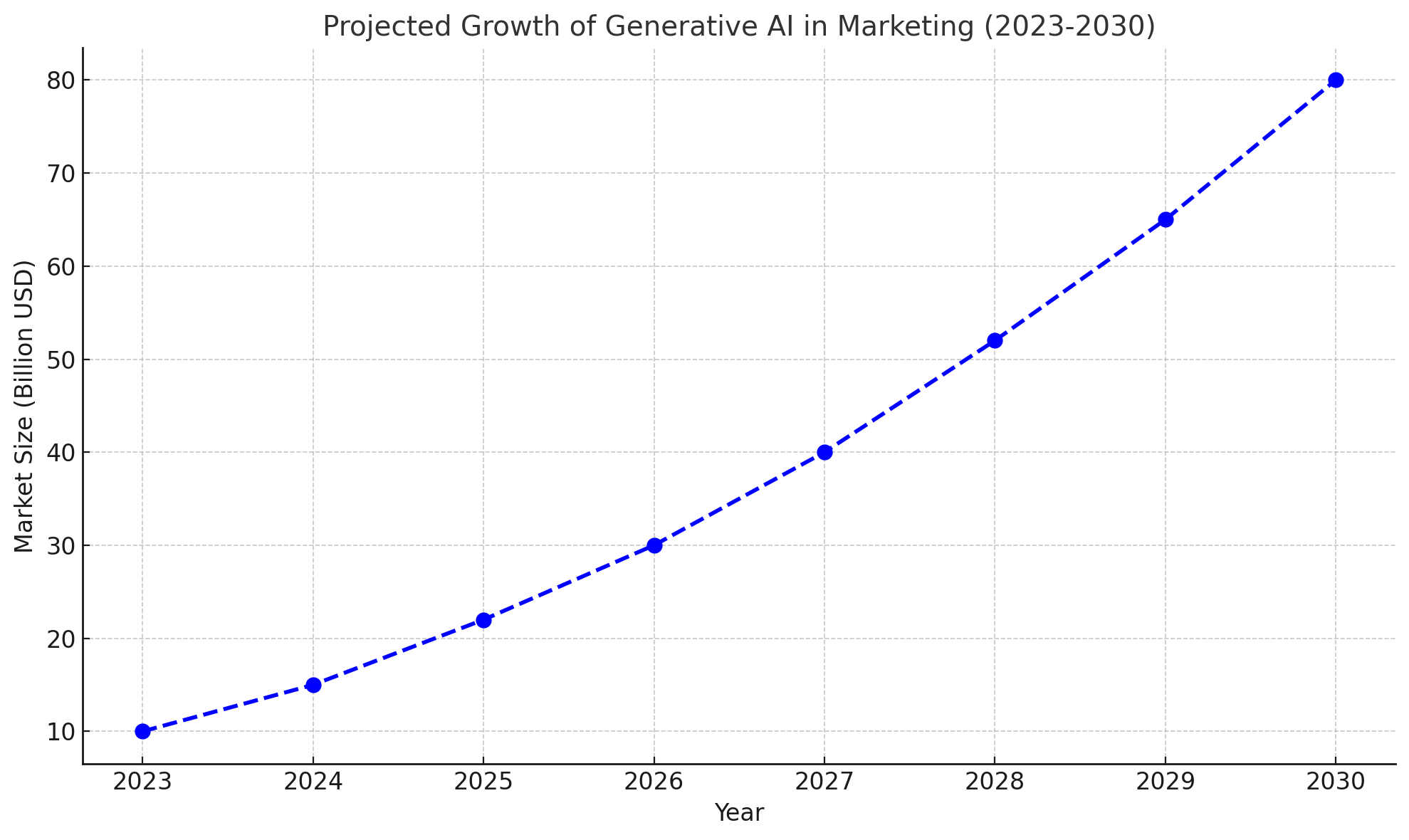
Best Practices for Using Generative AI in Marketing
1. Start Small
Begin with specific tasks, such as generating blog posts or ad creatives.
2. Ensure Ethical Use
Avoid generating misleading content and respect intellectual property rights.
3. Test and Optimize
Continuously monitor the performance of AI-generated content and make data-driven adjustments.
4. Combine AI with Human Creativity
Leverage AI for efficiency while maintaining human oversight for authenticity and emotional resonance.
Conclusion
Generative AI is revolutionizing content creation and marketing by automating processes, enhancing creativity, and delivering personalized experiences. However, its adoption requires careful consideration of quality, ethics, and integration challenges. By staying informed and embracing best practices, businesses can harness the power of generative AI to drive innovation and achieve marketing success.
FAQs
Generative AI refers to advanced artificial intelligence models that can generate text, images, videos, and other forms of content based on input data or prompts. In content creation, generative AI tools can write articles, create social media posts, design graphics, generate marketing copy, and even produce video content, enabling faster and more efficient production of creative materials.
Generative AI enhances marketing by automating repetitive tasks, personalizing content for specific audiences, and analyzing data to create targeted campaigns. It allows marketers to quickly produce A/B-tested content variations, develop compelling ad copy, and engage users through dynamic, AI-driven content, ultimately boosting engagement and ROI.
Ethical concerns include the potential for spreading misinformation, lack of transparency in AI-generated content, and over-reliance on automation, which could diminish human creativity. Additionally, generative AI may raise copyright and intellectual property issues if it inadvertently replicates existing works. To address these concerns, companies should prioritize responsible AI usage, transparency, and adherence to ethical guidelines.
While generative AI is a powerful tool, it cannot fully replace human creativity. It excels at automating tasks and generating ideas based on data but often lacks the emotional intelligence, cultural context, and nuanced understanding that human creators bring to the table. Instead of replacing creativity, generative AI complements it, allowing human creators to focus on higher-level strategic and creative tasks.
